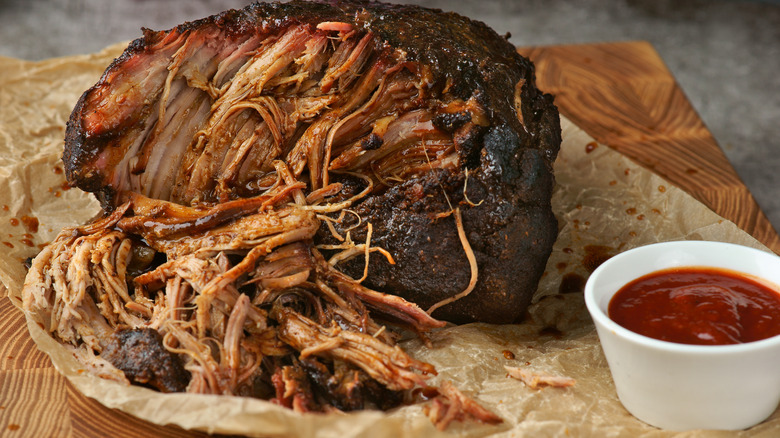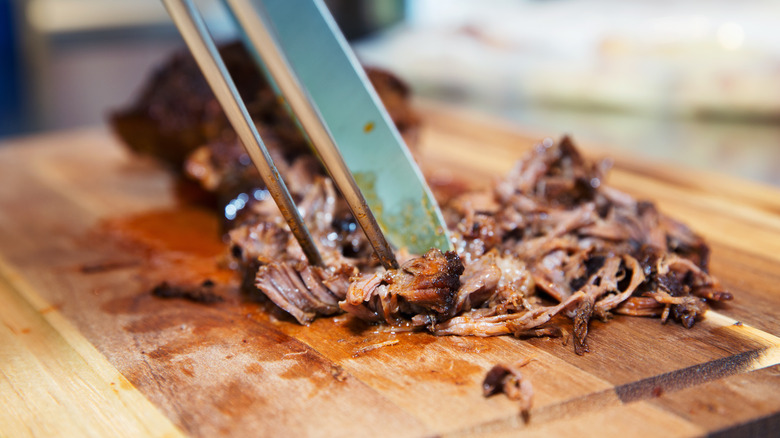Why Resting Meat Is Not Optional For Great Pulled Pork, According To An Expert
We've all been there. You spend hours, sometimes days, cooking a piece of meat to perfection and, when it comes out of the oven, you have to ... wait even longer. Resting meat is a crucial part of the cooking process — it enhances tenderness by allowing the muscle fibers loosen up from the heat as well as distributing juicy flavor throughout the meat. We talked to Chris Stark, director of culinary operations at Hill Country Barbecue Market, about why you absolutely must rest your meat if you want to pull off excellent pulled pork. And for more hot tips (or to even try some of Stark's cooking), visit him at New York's signature fall tasting event, City Harvest Presents BID 2024: CHTV!, on Tuesday, October 29, where he'll bring his passion for BBQ to The Glasshouse.
The biggest reason you don't want to dig into your pork right out of the oven — especially if you're planning on shredding it — is safety. Stark states, "Shredding a 200-degree pork butt comes along with 200-degree hands." Although "200-Degree Hands" sounds like a great superpower straight out of a sci-fi novel, it's not something you want to deal with yourself. Stark acknowledges that there are plenty of tools and heat-resistant gloves out there to make sure you never have to touch a scalding piece of meat, but his reasoning for skipping out on those is that, "If you've spent 16 hours cooking a pork shoulder, and maybe another 2-3 days brining prior to the cook, what's another 30-40 minutes, to achieve the best possible version of your pulled pork!?"
The importance of resting your meat
Regardless of how you shred it, pulled pork is delicious on a burger, in tacos, or even on it's own, but it all comes down to rest time. Chris Stark emphasized the importance of resting your meat beyond safety precautions and even beyond pulled pork. He says, "A post-cook resting period is fundamental for all proteins."
He went on to explain that as the ambient cook temperature heats your meat from all sides, it causes "the internal moisture content [to be] forced to the center of the cut." So another huge reason you want to rest your meat is that, as it cools, the muscles relax, and the moisture melts into the rest of the cut, allowing for a more tender bite. Stark says you don't even need it to rest for too long, 30-40 minutes will do.

